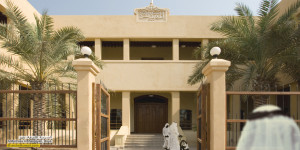August 6, 2014: “The U.S. Department of the Treasury today imposed sanctions on three key terrorist financiers under Executive Order (E.O.) 13224. Two of the individuals designated today, Shafi Sultan Mohammed al-Ajmi and Hajjaj Fahd Hajjaj Muhammad Sahib al-‘Ajmi, are Kuwait-based and support the Syria-based, al-Qaida-linked terrorist organization Al Nusrah Front (ANF); one individual, ‘Abd al-Rahman Khalaf ‘Ubayd Juday’ al-‘Anizi, is a financier and facilitator of the Islamic State of Iraq and the Levant (ISIL), previously known as al-Qaida in Iraq (AQI). Each has been designated as a Specially Designated Global Terrorist (SDGT). ANF and ISIL continue to receive donations from private citizens located predominantly in the Arabian Peninsula to fund their operations. Today’s actions target individuals who play key roles in the external financing and facilitation of terrorists in Syria and Iraq, including particularly dangerous foreign fighters……… said Under Secretary for Terrorism and Financial Intelligence David S. Cohen……………”
June 13, 2008: “The U.S. Department of the Treasury today designated the Kuwait-based Revival of Islamic Heritage Society (RIHS) for providing financial and material support to al Qaida and al Qaida affiliates, including Lashkar e-Tayyiba, Jemaah Islamiyah, and Al-Itihaad al-Islamiya. RIHS has also provided financial support for acts of terrorism. The RIHS offices in Afghanistan (RIHS-Afghanistan) and Pakistan (RIHS-Pakistan) were designated by the U.S. Government and the United Nations 1267 Committee in January 2002 based on evidence of their support for al Qaida. At that time, there was no evidence that the Kuwait-based RIHS headquarters (RIHS-HQ) knew that RIHS-Afghanistan and RIHS-Pakistan were financing al Qaida………………”
In other words: not only funding and encouraging sectarian takfiri volunteers to massacre civilian citizens of Iraq (and Syria and Lebanon), but also ally with remnants of Saddam Hussein’s Baath henchmen.
Cheers
Mohammed Haider Ghuloum









